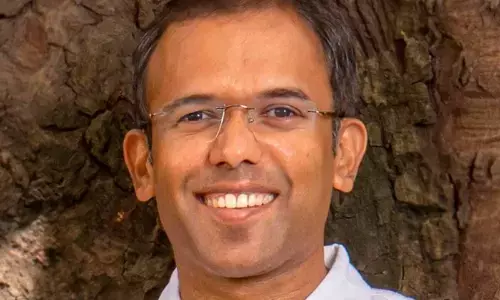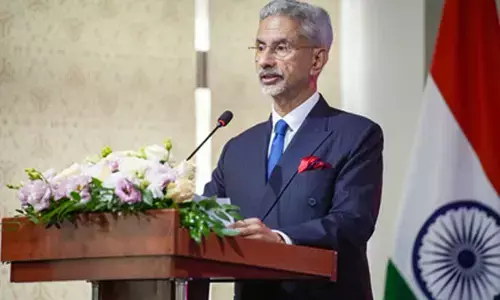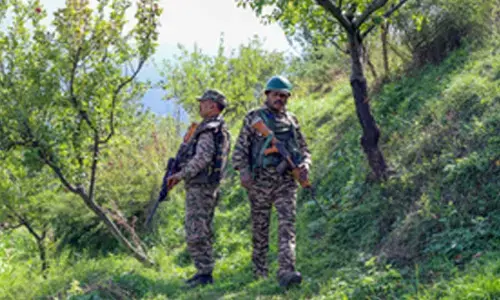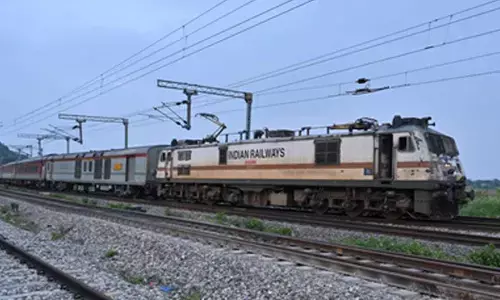Heart of business in times of coronavirus pandemic
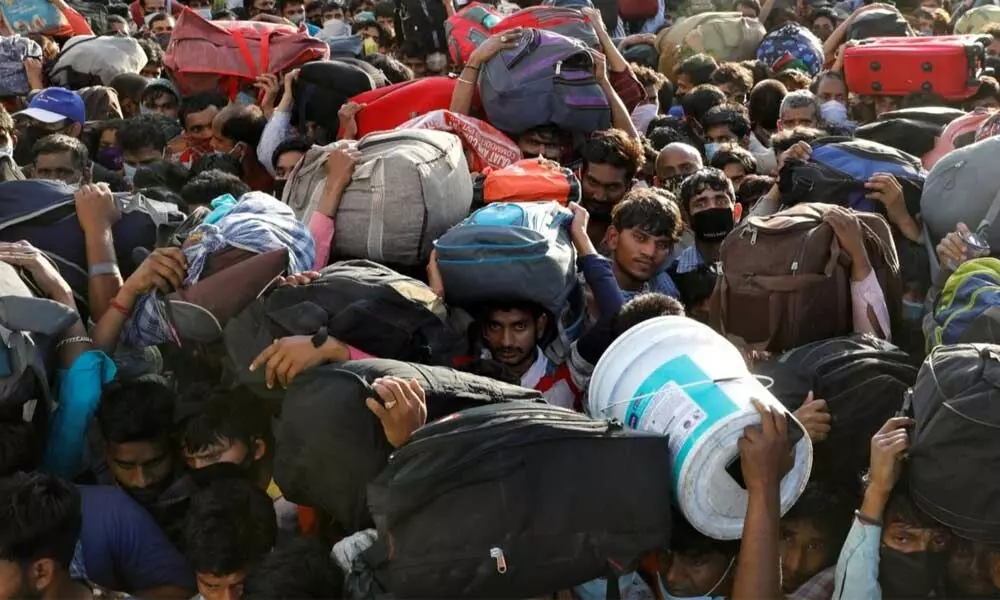
Heart of business in times of pandemic
The Covid Syndrome will haunt us for years
The Covid Syndrome will haunt us for years. Human misery is escalating, and many businesses are caught in this Covid trap. The business of business is to make profits. Yet, business and corporates are frequently criticised for not spending enough on community and social welfare. There are people who believe that business is prospering at the expense of society. Exhortations to spend more on CSR and even expecting business to contribute to areas of social stress not directly related to their areas of activity is an ongoing reality. The question of how much spending on social responsibility projects is enough remains unanswered and we forget that the business of business is to create economic value. The tussle between the heart and the mind is a continuous and never-ending process. Yet, there are companies who are doing an excellent job of balancing the two.
Many years ago, a television channel produced a programme that gently probed corporate businesses and unearthed the benefits of their operations to the community. It was tough to make the mark and be accepted on this programme. It made you think and forced you to look at your business from a new and societal perspective. Since then, corporates have evolved further, as internal leadership, CSR laws, and consumer expectations prodded them to present a more humane face of their brands. However, the question still troubles the hard-nosed decision makers who also listen to their hearts. It will continue to raise its head again and again as we go through social and economic disruptions. This is especially relevant today as we deal with the Covid Syndrome where business operations are almost as severely disrupted as the society itself. Every business will need to find its own answers on how to navigate this present while remaining relevant for the future.
That programme was conceptually very much similar to what Michael Porter and Mark Kramer of Harvard University later defined as Creating Shared Value (CSV). It created the realisation that even though the primary objective of business is to make profits, it can be done best when business empathises with the communities where it operates and focuses on creating value for both itself and the community. The essence is that business and the community are interdependent on each other. If the business focuses on those problems of the community where it has expertise and where its own interest is linked, then it creates superior value for both. Nestle's work over decades to develop the milk district of Moga is a commanding example of the CSV concept. It gives out a clear signal that the benchmark for social responsibility must be to create trust while ensuring efficient operations and enhancing the quality of life of the community in the long run. The operative word is 'Long Run' though in times of calamities and crisis the heart will want to dominate the mind.
The real test, however, is to make a decision under stress and be able to find the balance. The current pandemic is a reality check for economies and societies across the globe. In India, we are experiencing an entirely unique situation that seems to be overwhelming us. For over four months, the economy has been largely in free fall and marking time. Corporates are confronted with the 'Covid Syndrome' where the operations are grounded but the business is considered operational. The urban pockets have experienced an exodus and reverse migration of labour, who are doggedly returning to their native villages despite the hardships they face in the process.
Over five million migrant workers have been transported back by the railways alone, while many more with their families have made their way through other means. The economic disruption and the exodus of migrant workers going back to their villages is a defining moment. It confronts us with fundamental questions of human behaviour and responsibilities. It forces businesses to relook at their core and their fundamental purpose. It puts the spotlight on policies and the role that is expected of the government, the corporate and the individual. It impacts both the heart and the business and causes uncertainty, anxiety and turbulence in decision making. Is the social responsibility in ensuring business continuity or is it in mitigating the misery of people who are deprived of food and shelter? Both will have a long-term bearing on the business. It's an unusual situation and tough, but businesses and individuals have risen above the benchmarks.
Many well run companies have similar long-term views. Disruptions in economic activity, social upheaval, and increasing unemployment create stress, uncertainty and distress and bring us face-to-face with our own values. Corporates are clear that while the primary responsibility of the company is to ensure business continuity, it is also the time to reach out to try and heal scars, build trust and create hope.
The biggest challenge during a crisis of this magnitude is anxiety and uncertainty. While continuing to sustain the business during these unprecedented times, one of the key focus areas for companies is to manage the mindset of their talent across all levels and ensure that the 'family' stays connected and positive about the future. At the same time, they are concerned that the crisis has severely affected certain sections of society including daily wage labourers, the homeless, slum-dwellers, as well as the elderly who live alone and for them the true challenge is not only to evade the virus, but to get enough food to survive. IndiGo is one such company that not only focused on its internal people to keep them engaged and battle ready for post-Covid, it also ensured that IndiGoReach, which is the CSR program at 'IndiGo', stepped up its efforts and entered into partnerships and networked with like-minded and efficient organisations to reach the most vulnerable quickly. The employees also volunteered their time and initiated activities to ease the distress of marginalised individuals and the needy during the pandemic.
When resources are limited compared to the immediacy and magnitude of the problem, any amount committed as CSR will be insufficient. Irrespective of the quantum, it will leave the niggling feeling that perhaps we could have done more. The solution is to focus resources on creating shared value instead of indulging in guilt-driven social responsibility. The Sikhs have the widely practiced tradition of langars, or the practice of food sharing through community kitchens. It is selfless service without any discrimination that reflects humility and creates hope for those in need throughout the year, not just in times of a public crisis. 'Langars' are an epitome of selfless service that cannot be seen as charity. Many corporates and individuals have partnered with the 'langars' because the 'langar' concept recognises interdependence in society and the need to add value. The donations, the support and the volunteers that help sustain these 'langars' reflect a deep-seated desire to add value. It creates that unique bond of mutual respect and trust that is necessary to co-create value in society. Not as a mandated social responsibility but as a recognition of the need. CSV is only the corporate version of this approach to co-create value with the communities instead of a patronising charitable approach.
The core of CSV is to develop and sustain synergy and trust between the community and the business and create a win-win situation for both. Trust will be the cliff-hanger in the future, but it will no longer be a matter of chance. Business will have to work hard to create shared value and establish trust in the community.
(The writer is founder and president, WALNUTCAP Consulting LLP. The views expressed are personal)








